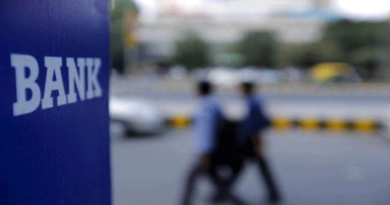Here are the risk associated with being a guarantor
Here are the risk associated with being a guarantor
As a tool for mitigating credit risk, lenders often require individuals to sign up as guarantors for: business loans being availed by the business entity of the individual; or loans being availed by friends and family of such individuals. Individuals should be mindful and cognizant of the major legal risks that they are being exposed to by signing a guarantee, as summarized below:
Liability to repay debt:
The foremost risk in becoming a guarantor to any loan is the requirement to repay the loan along with all interest amounts, penal/default interest amounts and other outstanding amounts thereon in case of any default by the borrower on whose behalf the said guarantee has been issued by the guarantor. Under law, the liability of the guarantor is co-extensive with that of the borrower. The guarantor is liable to repay such debt regardless of whether any recovery action has been initiated against the borrower or not. Note that, once a guarantee has been issued by the guarantor, the guarantee provided cannot be unilaterally withdrawn by the guarantor unless the entire debt of the borrower has been fully repaid.
Legal action(s) for non-payment:
Whenever the borrower fails to repay the loan availed from the lender, the legal consequences that entail on the guarantor are as if the guarantor himself/herself was the borrower. Such legal consequences could involve recovery proceedings being filed by the lender before the appropriate court or tribunal or even the commencement of personal insolvency against the guarantor. Pending such recovery proceedings, the lender could also initiate actions to obtain interim order(s) to get the guarantors to disclose their assets and restrain the guarantors from disposing of their assets, without consent of the lender. The costs and risks of such legal proceeding will lie solely with the guarantor and, therefore, the guarantor should ensure that the borrower undertakes to indemnify the guarantor for such costs and expenses.
Adverse impact on future availing of credit and credit score:
Since a guarantee is in the nature of a contingent liability till the same has been invoked, the guarantee provided by the guarantor may not typically be reflected in the ‘net worth’ statement of the guarantor. Such contingent liability may however impact the ability of the guarantor to raise further funding as it: may be considered into the credit appraisal process in order to determine credit-worthiness; and it will be factored into the credit score of the guarantor. Matters become worse when the borrower defaults on the loan as any new loan to be availed by the guarantor could potentially be denied or a higher interest rate could be charged by a lender, due to the credit-worthiness and credit score being adversely affected.
Reading the fine print:
There are instances when the contract of guarantee contains a covenant to the effect that the guarantors shall not, without the prior consent of the lender, deal (say, selling) with any of their assets. Such negative covenant could be worrisome as it may impact the ability of the guarantors to deal with their assets going forward without the prior written consent of the lender and in case of any default/breach, the guarantor may be exposed to various legal actions by the lender. It is therefore essential that the guarantors ensure that they have voluntarily and rationally agreed to such a clause being incorporated in the guarantee, after understanding the full repercussion of such clauses.
In summary, one needs to be mindful of becoming a guarantor as it is not a mere comfort that is being provided to the lender on behalf of the borrower, but it is a direct legal and financial obligation being assumed by the guarantor. One needs to assess the impact of becoming a guarantor by analysing the financial and legal risk that will ensue on providing such guarantee. The decision to provide a guarantee should be well thought through and the contract of guarantee should be properly reviewed, read and understood and proper legal guidance should be sought in order to ensure that the contents of the contract of guarantee are in line with the agreed commercial understanding between the parties and the interests of the guarantor are adequately protected.




